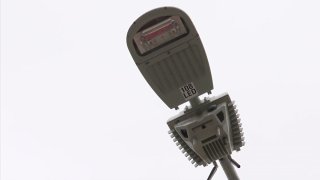
The City of San Diego's controversial smart streetlight program is facing a new setback.
Mayor Kevin Faulconer ordered city staff on Wednesday to cut off access to video taken by the streetlights' cameras.
"Mayor Faulconer has directed city staff to completely turn off access to video footage from smart streetlights following clear feedback from city councilmembers and community leaders that they want a surveillance ordinance in place before the council will consider any use of this technology," said a statement released by the mayor's office on Wednesday.
The smart streetlight program was started in 2018 and was originally designed to capture traffic data and parking availability. Eventually, though, it grew into an investigation tool for San Diego police. Officers used streetlight footage 175 times from August 2018 to October 2019, according to city data obtained by NBC 7 Investigates. Data shows the cameras were used by SDPD to investigate a wide variety of crimes, including homicides, violent assaults, vandalism, illegal dumping, evading arrest, destruction of city property and drunk driving.
Footage recorded by the streetlights was also used 35 times in investigations of protests over racial injustice back in June, with police probing incidents of vandalism and looting.
"We know that the smart streetlight footage was only supposed to be accessed for certain serious crimes, and we saw that they were being accessed for very minor crimes like vandalism," said Genevieve Jones-Wright, a former public defender who now works as a facilitator with the Transparent and Responsible Use of Surveillance Technology in San Diego Coalition, or TRUST SD, back in July.
Local
NBC 7 Investigates also reported on a Feb. 12 city memo which found the smart streetlight program would cost taxpayers millions more than expected.
In that memo, Erik Caldwell, the deputy chief operating officer for San Diego’s Smart and Sustainable Communities Division revealed that the program suffered from a “lack of oversight,” a failure to conduct “proper due diligence” and that city staff in charge of the program had “limited technological expertise.”
Caldwell also said his department had uncovered “errors and missing information” in the program’s accounting, revealing that his department found that the energy savings expected by converting to LED street lights were exaggerated by about $800,000 a year. City staff had used the energy savings as an incentive for the city council to approve entering into the initial contract for the streetlights.
In addition to the lower savings, Caldwell said there were hundreds of thousands of dollars in “unanticipated operational expenses,” including $500,000 annually for a computer interface for each node, $140,000 a year for “data connectivity” and $446,000 for maintenance, data analysis and lighting issues.
The streetlights stopped collecting some data at the end of June while the city started working on a new contract with Ubicquia, the company that runs the equipment.
Ubicquia officials, however, said the company would still provide footage of serious or violent incidents to San Diego police upon request.
NBC 7 reached out to San Diego police for a reaction on the mayor's decision but the department declined to comment.



